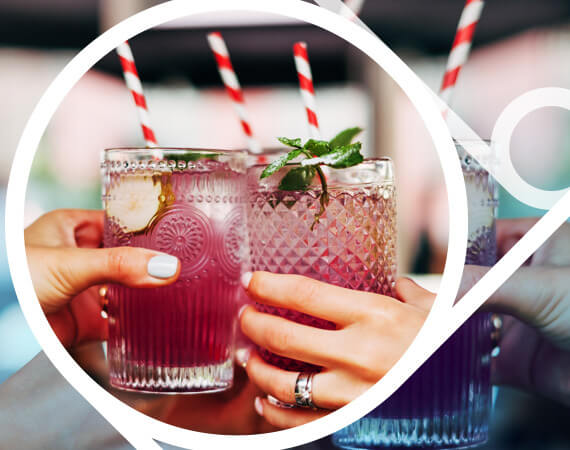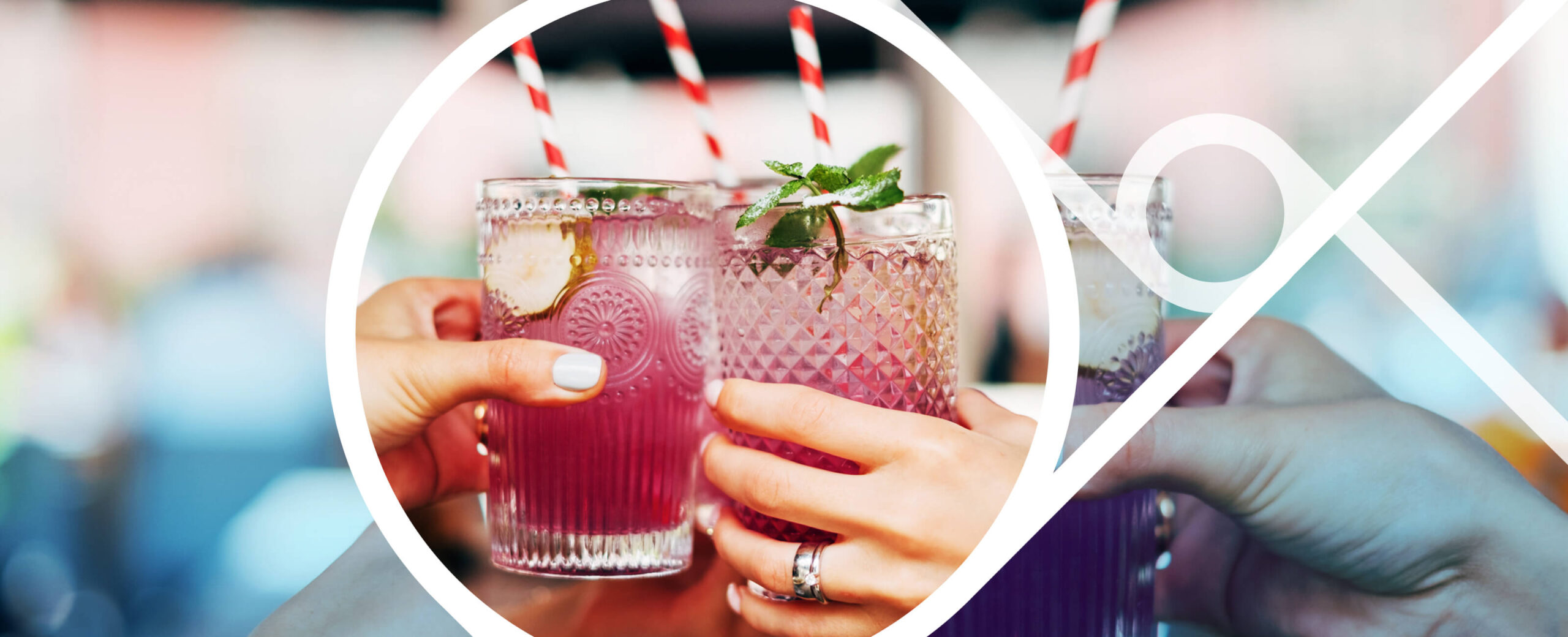Many people today are shifting their lifestyles to focus more on health and wellness, from prioritizing self-care to whole-food natural diets. However, one of the fastest-growing trends among Gen Z and Millennials is an increased interest in the “sober curious” lifestyle. Not to be confused with sobriety or abstaining from alcohol altogether, sober curious means choosing to minimize or cut back on alcohol use in everyday life.
Elements of this growing trend include terms like “hangxiety” and adaptogenic zero-proof cocktails, which MarketCast’s Social Research Insights team took a deep dive into along with the rest of the NoLo (no and low alcohol) movement.
The sober curious lifestyle is gaining traction online
Gen Z and Millennial females are leading the trend, and frequently share their alcohol-free journeys online and encourage others not to feel left out while in social settings. On TikTok, hashtags related to NoLo and sobriety continue to grow. For example, #sobercurious has increased by +35% in the past four months – increasing from 450M to 608.3M views across social platforms.
Additionally, the r/stopdrinking subreddit has more than doubled its member count since the start of the pandemic in March 2020 – increasing from 222K members to over 450K today.
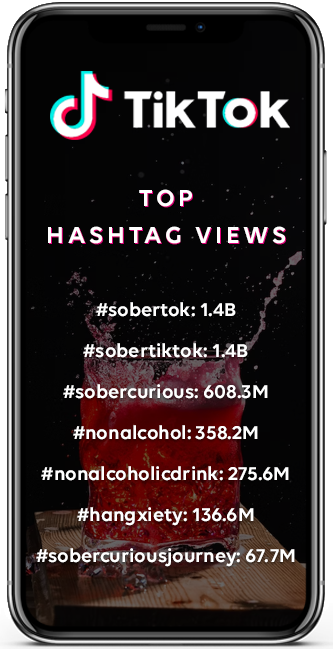
Additionally, #hangxiety posts have more than 136M views on TikTok, defined as anxiety while hungover, specifically feeling uneasy about drunken actions from a night out (a feeling many of us can relate to).
When looking at Google Trends, search interest around topics like zero proof and non-alcoholic are increasing year-over-year. Over the past five years, topics like “non-alcoholic drink” and “non-alcoholic spirits” have generated +3,650% and +750% increase in Google Search frequency.
Drink brands are paying close attention to the NoLo trend
With this new shift in consumption, a surge of zero-proof and low-alcohol options from beverage brands have entered the market and are climbing in sales. In 2022, the no-and-low alcohol category had over $11B in sales and is expected to grow another 25% by 2026 – making this category the fastest-growing in the US.
In fact, the online liquor delivery platform Drizly saw a significant increase in non-alcoholic beverage sales in 2022 compared to 2021.
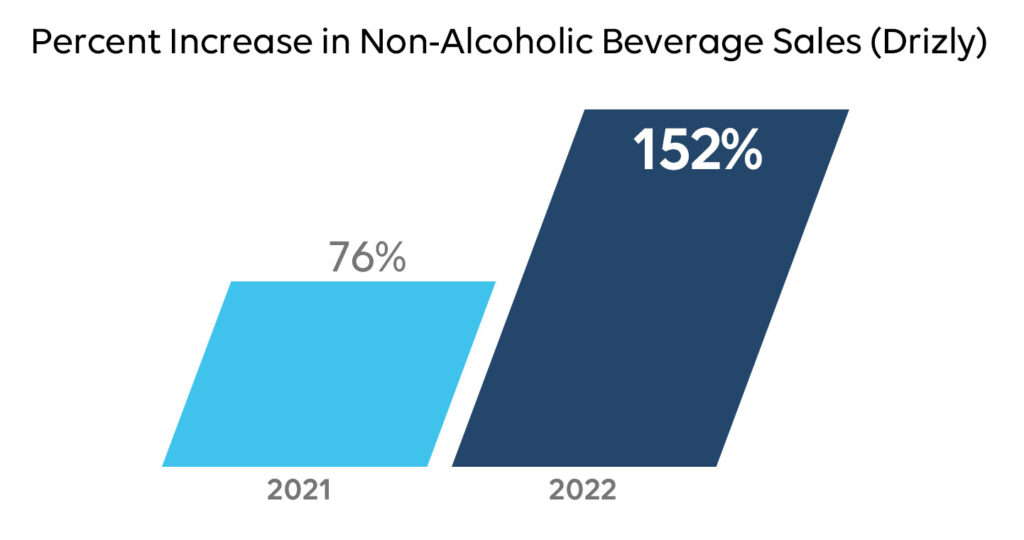
Beer brands nationwide have expanded their lines of alcohol-free brews, such as Sam Adams’ Just the Haze Non-Alcoholic IPA, Heineken 0.0., and even Guinness’ Non-Alcoholic Draught. At the same time, new breweries like Athletic Brewing have emerged, focusing solely on creating non-alcoholic beers and marketing their products to athletes and active individuals.
For those who have given up on booze but are still looking for something to take the edge off, drink substitutes with added adaptogens, such as ginseng, THC, CBD, and Ashwagandha, are also gaining popularity. These functional beverages provide consumers with various health benefits, such as promoting personal balance, alleviating stress, providing mental clarity, and even a slight buzz.
Zero-proof drinks are coming to an event near you
Typically, sporting events, concerts, and festivals are among the most popular places to drink alcohol socially. With NoLo and zero-proof beverages gaining momentum, major event venues and organizers are taking note.
An increase in sober bars, pop-ups, and social events has expanded the accessibility for sober curious consumers to partake in a night out or happy hour in a way that fits their lifestyle. Because of this norm shift, there is a stronger desire for non-alc options to become more mainstream at larger venues and events.

The Coachella Valley Music and Arts Festival noted this increased demand and partnered with The New Bar, the event’s first official non-alcoholic sponsor, where they set up two bars at the festival that only served non-alcoholic beverages and mocktails. The New Bar’s Instagram post announcing this collaboration experienced 460% more likes than their account average.
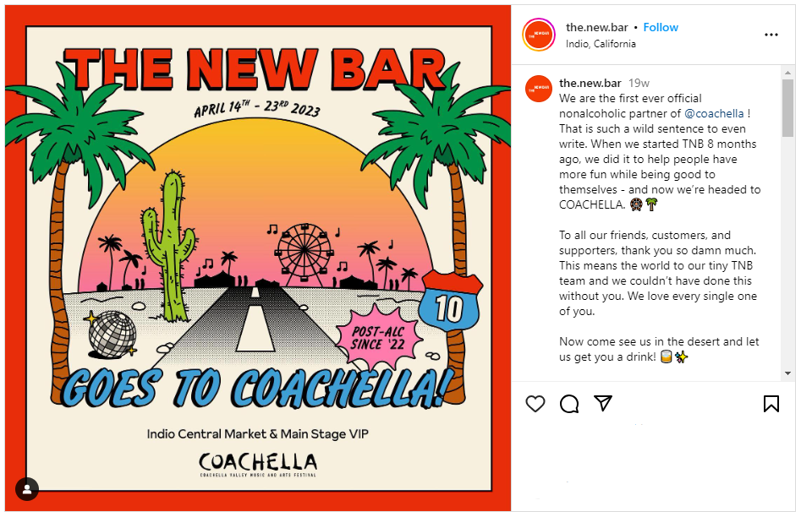
As the beverage category continues to fizz, the social research experts at MarketCast will keep a finger on the pulse of what’s new and engaging with consumers and how brands can stay ahead of the curve. So raise a glass and stay tuned for more insights from MarketCast’s Social Research Insights team, and to learn more about how we can help you optimize your research, advertising, and marketing strategies in the beverage category and beyond, contact us!

